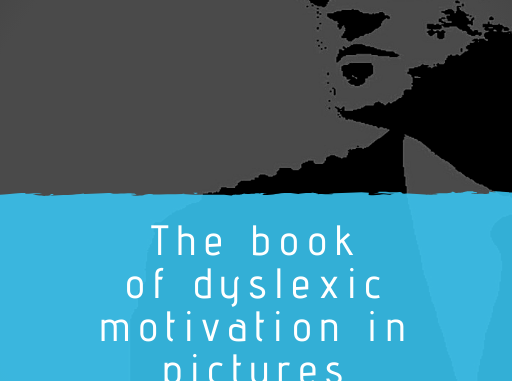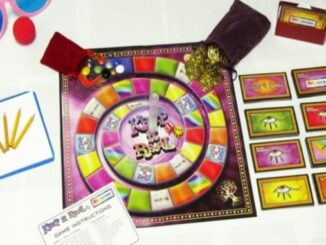
The Book of Dyslexic Motivation in Pictures, by Will Wheeler, is a game of two halves, both of which have lots to teach us about becoming a successful professional (dyslexic or otherwise).
The first half of the book consists mostly of anecdotes from Will’s own past. Sometimes extremely painful to read, one might question what place they have in a book which later becomes a very practical ‘how-to’. There are many answers to this question. For the dyslexic reader, many of the situations he describes will be all too familiar. They will serve as a basis to trust that the author knows what he is talking about, when he later gives advice. For those like me, who are not dyslexic, but have people with dyslexia and dyspraxia in their lives, it gives an insight into the struggles, prejudice and unnecessary obstacles that are daily put in their way.
One of the reasons that a book like this is so necessary is that those who should help smooth the way to achievement – teachers, line-managers and yes, even family, often, through lack of understanding, or even, shockingly, downright hostility, are the major part of the problem.
This is not only a dreadful waste of talent, but from an individual perspective, is painful and takes a massive toll on mental health.
Will’s story takes the reader through these painful struggles, to the stage where he starts to realise his own potential, how dyslexia can be an asset and not the ‘disability’ that most still see it as, to his first inclination towards entrepreneurship, and ultimately to the Dyslexic Evolution – the professional development business he leads today.
“It took a while to convince myself that my dyslexia is the reason I achieve my goals today.’
One should not fall into the trap of thinking that this is just another story about overcoming adversity through grit and hard work – although in some senses it is. This is not just about ‘having it tough’ but about Will’s growing understanding that the dyslexia is not the problem, and is in fact a gift, one that helps him to think more creatively than neurotypical people. He claims, later in the book.
“The greatest gift my parents ever gave me was dyslexia.”
The second half of the book is very practical, and will be useful to many people, regardless of whether they are dyslexic or not. There are chapters on career and business planning, branding, networking and even whole chapter dedicated to the effective use of LinkedIn. I thought I was pretty hot at LinkedIn, but Will has something to teach even the most seasoned networker.
The sections on technology, organisational habits and presentations, will, I think be particularly useful for the dyslexic in my life who is always looking for new strategies to support him with the areas of work with which dyslexics struggle, freeing him up to concentrate on showcasing the many strengths it also brings.
The section dedicated to the ‘Dyslexic Leader’ is perhaps the most important in the book. Forty percent of entrepreneurs are dyslexic, apparently, which gives an extremely strong indication of the opportunities which are being wasted by organisations who chose to sideline their dyslexic employees, or force them to hide for fear of being stigmatised.
Will’s vision is of a world where dyslexic (and other neurodivergent) strengths are embraced and help organisations to become more successful. Dyslexic leaders are an important part of this vision. Owning this book and taking its advice to heart could be the important first step taken today by many of those future dyslexic leaders.
The Book of Dyslexic Motivation in Pictures is available on Amazon
- James Bore – The Ransomeware Game - 13th February 2024
- Ipsodeckso – Risky Business - 23rd January 2024
- Review – Luma World Games - 15th December 2023




Be the first to comment